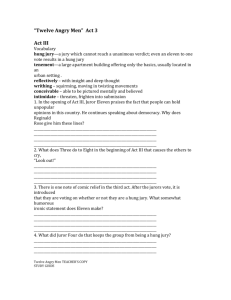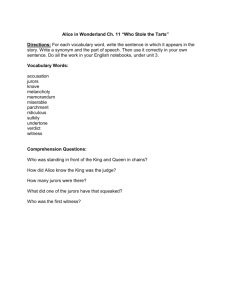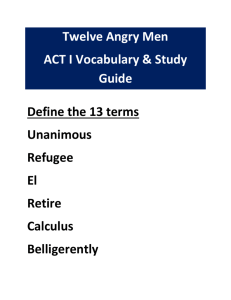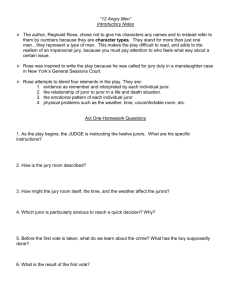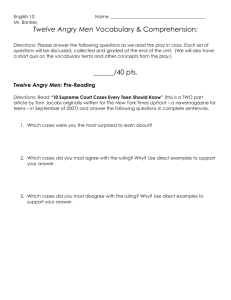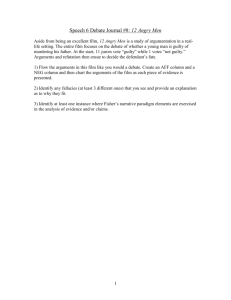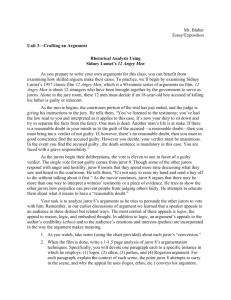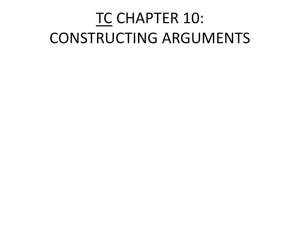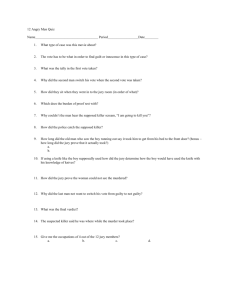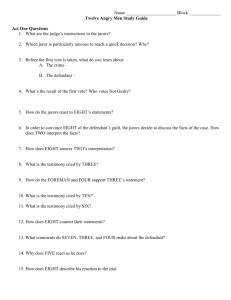Twelve Angry Men - Mr. Skipper dot Com
advertisement
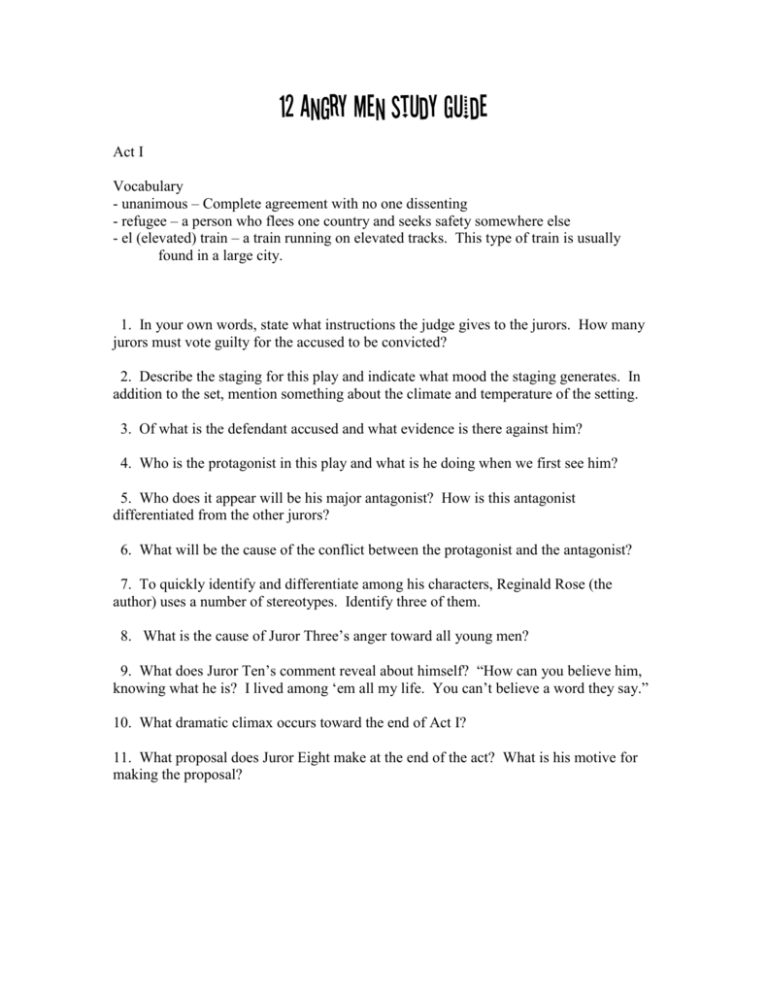
12 Angry Men Study Guide Act I Vocabulary - unanimous – Complete agreement with no one dissenting - refugee – a person who flees one country and seeks safety somewhere else - el (elevated) train – a train running on elevated tracks. This type of train is usually found in a large city. 1. In your own words, state what instructions the judge gives to the jurors. How many jurors must vote guilty for the accused to be convicted? 2. Describe the staging for this play and indicate what mood the staging generates. In addition to the set, mention something about the climate and temperature of the setting. 3. Of what is the defendant accused and what evidence is there against him? 4. Who is the protagonist in this play and what is he doing when we first see him? 5. Who does it appear will be his major antagonist? How is this antagonist differentiated from the other jurors? 6. What will be the cause of the conflict between the protagonist and the antagonist? 7. To quickly identify and differentiate among his characters, Reginald Rose (the author) uses a number of stereotypes. Identify three of them. 8. What is the cause of Juror Three’s anger toward all young men? 9. What does Juror Ten’s comment reveal about himself? “How can you believe him, knowing what he is? I lived among ‘em all my life. You can’t believe a word they say.” 10. What dramatic climax occurs toward the end of Act I? 11. What proposal does Juror Eight make at the end of the act? What is his motive for making the proposal? Act II Vocabulary technicality—a minor detail affecting a legal decision. a suspect can be freed on a technicality if certain legal procedures are not followed accurately. sadist—one who takes pleasure in hurting someone else. 1. What causes the conflict between jurors Three and Five at the opening of this scene? 2. Why had Nine changed his vote? Who is Nine? 3. What is the point that Eight makes about a passing elevated train? 4. Nine thinks the old man might have said what he said in order to get attention, not because he actually heard anything. What led him to this conclusion? 5. When Three and Nine are arguing over whether the old witness said that it took him fifteen or twenty seconds to get to the door, what does Three say? 6. Why does Three immediately look sheepish after he says this? 7. What is the point of all the measuring that Eight does? 8. Why is it so important for Three that the boy be convicted? 9. On what dramatic note does this act end? What makes the dramatic climax so significant? Act III Vocabulary hung jury—a jury which cannot reach a unanimous verdict; even an eleven to one vote calls for a hung jury. tenement—a large apartment building offering only the basics, located in an urban setting. 1. In the opening of Act III, Eleven praises the fact that people can hold unpopular opinions in this country. He continues speaking about democracy. Why does Reginald Rose give him these lines? 2. What does Three do to Eight in the beginning of Act III that causes the others to cry, “Look out!” 3. Why is Five convinced that the boy did not stab his father? What makes Five an authority? 4. After Five’s comments about the knife, another vote is taken. How does the count stand after this vote? 5. In the scene where Ten starts going on about “those people,” why do the other jurors get up from the table? 6. To Four, what is the most convincing evidence that the boy is guilty? 7. What is brought up to refute the woman's claim that she saw the boy kill his father? 8. What piece of stage business forces the jurors to think about the woman and her glasses? 9. Why does Four change his vote to not guilty? 10. What is the dramatic climax of this act? 11. Did Three finally believe the boy was not guilty, or did he vote just to get it over with? Support your answer.
